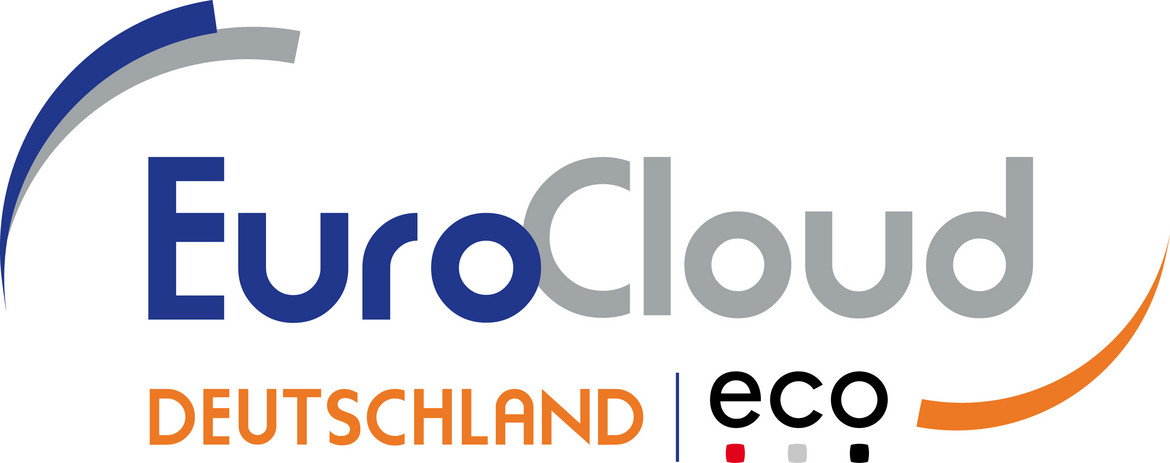Do Systems Integrators Still Have a Future in the Cloud?
Systems integrators are the backbone for the digitalization of SMEs. Now they themselves are struggling with change: Felix Höger from eco presents 5 challenges for the sector.

© francescoch | istockphoto.com
This interview was first published in German at https://www.eco.de/news/haben-systemhaeuser-noch-eine-zukunft-in-der-cloud/
The cloud makes companies more viable
As if in a crucible, the Corona crisis is showing us starkly that digital business models and cloud technology are becoming a survival factor for companies. Those who could just send their employees overnight to work from home or continue to sell their products over the Internet had a clear advantage. While the lights went out in offices and shops, work continued in the cloud in many places.
In the national lock-downs, whole economies learned to appreciate the value of location-independent, mobile, and interoperable IT. After this experience, companies will certainly approach the digital transformation of their business differently. As operators of the world’s largest cloud platforms, US hyperscalers are therefore already among the winners of the crisis. On the other hand, acceleration towards the cloud is forcing systems integrators, as the most important IT partners of SMEs, to accelerate their own transformation, subject to increased risks.
1. Traditional systems integrator competencies not in demand in the cloud
The pandemic has only accelerated what had already started: Reservations about using the public cloud have been dwindling for years. According to the Consulting company Crisp Research, more than 80 percent of companies in all industries see the cloud as the supporting pillar of their IT. As early as 2017, German SMEs invested 41 percent of their IT budget in the use of cloud infrastructures. In less than a decade, more than a third of the demand in the IT service market has thus shifted from traditional trading, licensing, and project business to the cloud economy.
Today, one in three companies stores even critical business data in the data centers of Amazon, Microsoft, and Google. In 2016, it was not even one in five. By 2023, IDC’s market researchers expect that companies worldwide will reduce their budget for local IT infrastructure to just under 42 percent, down from 52 percent in 2018. For the systems integrator sector, these figures were already difficult to digest before Corona.
With the growth of the public cloud, the sector’s home territory – IT supply on-premises – is shrinking. Small and medium-sized service providers, in particular, continue to generate the bulk of their revenues at the lower infrastructure levels, i.e. with the sale of server hardware, storage systems, and network equipment, as well as the integration of systems on site at the customer’s premises. In the public cloud, on the other hand, this lowest link of the value chain has been completely eliminated. The systems integrator is left with a brokerage commission of between five and eight percent, which in the cloud, however, is based on the actual consumption of the customer and therefore fluctuates. In the cloud age, the reseller business is shrinking to a secondary source of income.
2. Infrastructure is depreciating
The competition from the hyperscalers is also felt by those systems integrators that have already reached the next evolutionary stage of their business model: These systems integrators offer their customers largely standardized IT services from their own or leased data centers, so-called “managed services”. In contrast to the trading, project, and integration business, the IT systems are no longer owned by the customer. Instead, the customers use infrastructure and operating services from their provider’s private cloud on a monthly basis.
Nevertheless, the public cloud is also setting standards here: With gigantic economies of scale and unrivalled data center efficiency, hyperscalers are driving down the price of infrastructure services. Flexible contract models and sophisticated user interfaces lower the barriers to access IT resources. Experience with such products has a lasting impact on the expectations of business customers. Long contract periods, premium prices, or manual processes are therefore under pressure to justify themselves. Systems integrators with an asset-light approach, i.e. without data centres in their own ownership, have an advantage here, because – in the cloud – there is no longer a lack of infrastructure capacity, but rather a lack of know-how on how to use it best. This is particularly true of the latest trend: the multi cloud.
3. Experts for hybrid and multi cloud are hard to come by
In order to benefit from the broadest possible spectrum of innovations, according to Crisp Research, three quarters of companies will soon be using more than one cloud. In addition to the hybrid cloud – the combination of private and public cloud – more and more business customers are pursuing a multi-cloud strategy. In doing so, they obtain services from various cloud ecosystems. However, SMEs, in particular, lack the expertise to orchestrate different cloud resources with confidence.
The hyperscalers do not see themselves as being obliged to help here. They cannot exploit their economies of scale in the small consultancy business. The analysts of Crisp Research and IDG expect a new type of service provider to fill this gap: In future, Managed Cloud providers will support companies as the most important contacts for planning, evaluation, and management of (multi)cloud infrastructures.
Systems integrators must address this rapidly growing demand! Not only are they geographically close to the customer, they are also the preferred contacts for all IT issues. However, building up the necessary expertise is not easy – even for IT service providers. The market for cloud architects has been swept clean.
4. Hyperscalers conquer the last bastion: On-Premises
Until recently, the systems integrator industry hoped that at least one budget would not be drained by the public cloud: The IT factories of the hyperscalers had and have no place for legacy infrastructure in companies. The maintenance of homegrown, highly individualized IT systems does not fit into the scalable and standardized business model of Amazon, Microsoft, or Google. Instead, companies migrated their legacy IT to the private cloud. Until now.
The US hyperscalers have adjusted their strategy: If not all local server capacities can be absorbed by their cloud data centers, then they just make an “on-premises” offer as an outpost of their technology stack. Solutions such as Amazon’s Outpost or Microsoft’s Azure Stack offer companies comprehensive cloud equipment for their own data centers.
This foray could prove to be a tipping point in the competition for local IT infrastructures: If companies use the same technology in both the private and public cloud, they obtain a fully interoperable and at the same time scalable IT landscape. Finally, their own systems then also profit from the extreme speed of innovation of the hyperscalers. No matter what, a consistent cloud architecture is the right strategy. After all, future generations of business software will be developed only for the cloud. And now such programs run on-premises.
For the systems integrators, this means that: In the long term, value creation is mainly to be found in the technology stack of the hyperscalers. All traditional IT and telecommunications business models are being put to the test. The pressure to transform business models completely mixes up the market – and that at top speed during the pandemic.
5. Legal and financial risks of transformation
However, to reach the next evolutionary stage – the managed cloud provider – systems integrators not only need new expertise and specialist personnel, but also a willingness to take risks and entrepreneurial spirit to finance this transformation.
How aggressively should systems integrators approach this remodeling? How radically should they divest themselves of old business? While infrastructure margins are collapsing and daily rates are coming under pressure in the project business, the high up-front costs for building up the service business still need to be met. These cannot be passed on directly to end customers. So where will the liquidity for change come from?
This changeover – to business processes instead of project business, to ongoing customer relationships and continuous service instead of one-off trade turnover, to 24x7 operation of services and high demand for top experts – above all else costs money. Not to mention the legal risks that partnerships with the major hyperscalers entail: contracts, cost structures, commissioned data processing.
The top dogs in the industry, which is growing organically by 10 to 15 percent every year, are overcoming this choppy wave under their own steam. The small and medium-sized providers will specialize and focus even more on industry knowledge and radical customer orientation.
Nevertheless: Systems integrators are indispensable for digitalization
The transformation of systems integrators is gathering pace and is no less demanding than that of their customers. With the impending acceleration after the current crisis, business risks are also growing. As the association for the cloud industry in Germany and Europe and as experts for the cloud market, we want to accompany and support systems integrators in this process to a greater extent: initially with a series of publications and workshops and our own range of events. In addition, we bring the interests of medium-sized service providers into current political initiatives at both national and European level, for example in the GAIA-X project, as well as in the conception of a European data strategy.
Systems integrators are indispensable as trusted advisors and IT partners for the digitalization of SMEs. It will be crucial that they resolutely leave behind the classical structure of their business and, with the right network, open up new growth opportunities in the emerging digital single market.
Felix Höger is one of the industries well-known pioneers and leaders of cloud computing in Germany. In 1995, he founded the Internet Service Provider NDH, which he merged with the software manufacturer PIRONET in 2000 to become today's CANCOM PIRONET, and which he then further developed into a major German cloud provider. Following this, Felix Höger was responsible as COO/CTO at QSC AG for the realignment and further development of the corporate group into a modern cloud service provider and for the operation of its entire ICT and cloud portfolio, a role he continued until 31 December 2017. Today, as a consulting partner, supervisory/advisory board member, and investor, Felix Höger supports in particular small and medium-sized enterprises in a diverse array of digital projects and investments – with such support spanning the design of business models through to successful establishment on the market.
In his functions as Chair of the Supervisory Board of DE-CIX Group AG and member of the management boards of both eco – Association of the Internet Industry and Eurocloud Deutschland, Felix Höger is closely affiliated with both the key players and the ongoing developments in the technology industry as a promoter and lobbyist.






